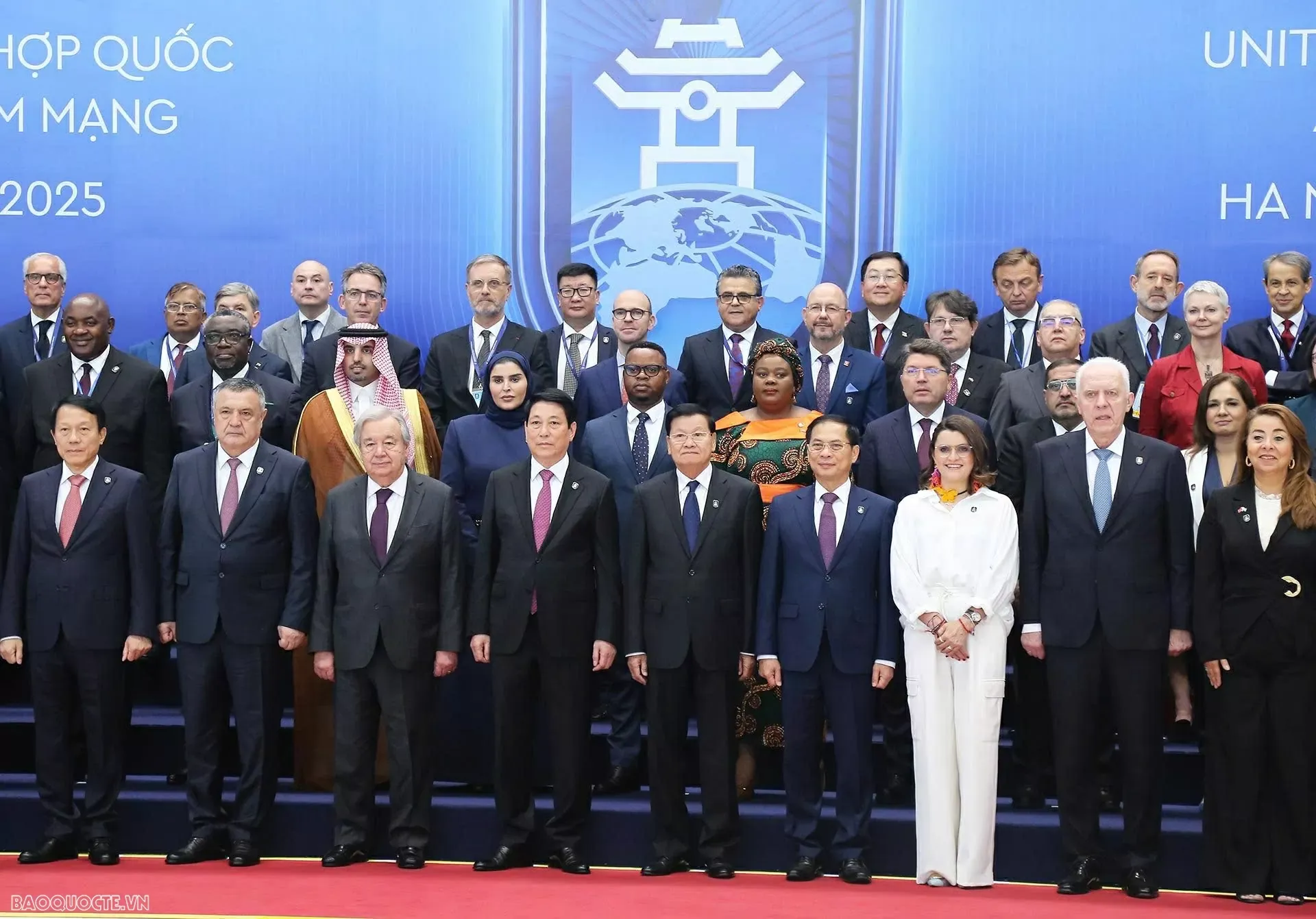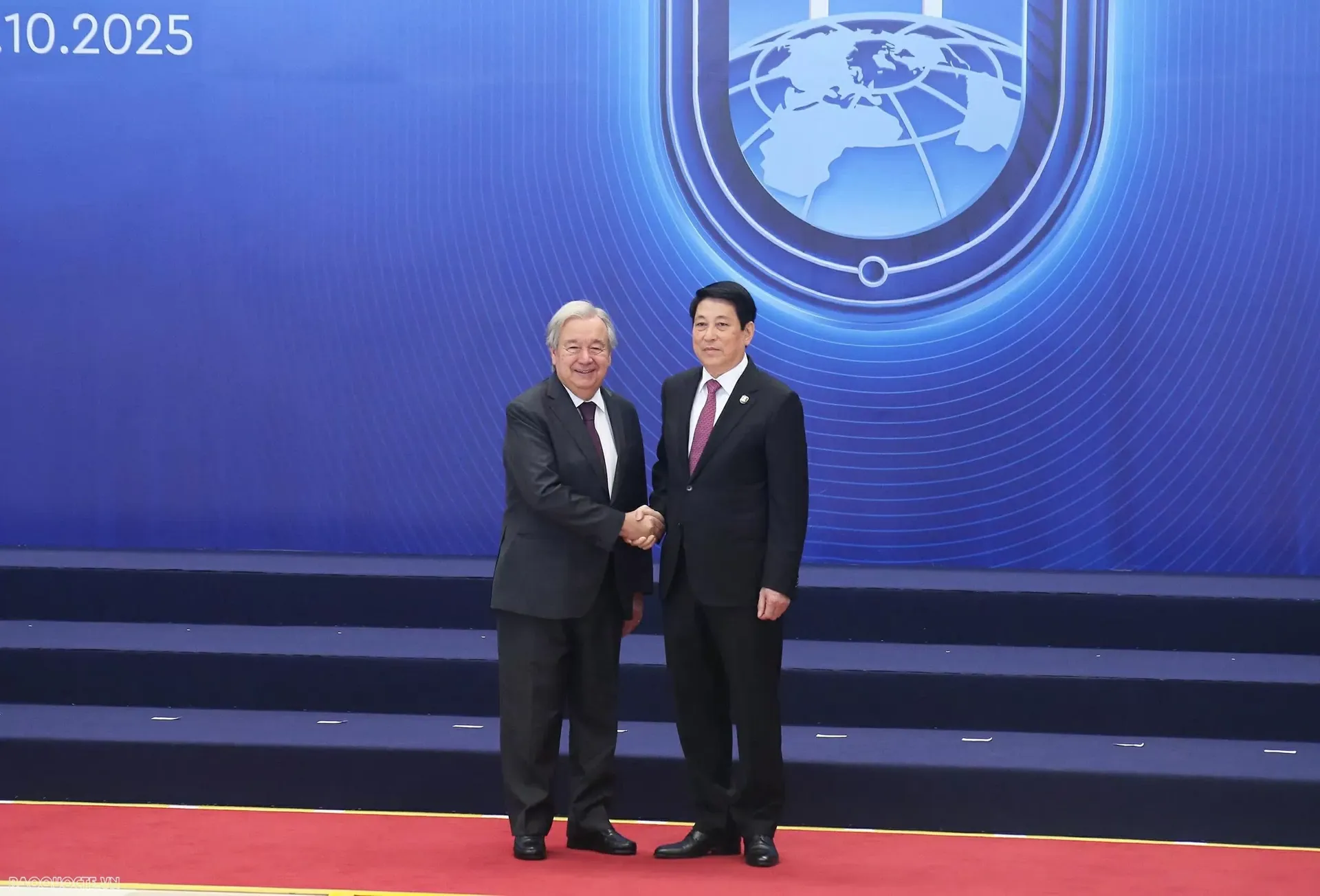Vietnam takes center stage as UN adopts Hanoi Convention on cybercrime
The Hanoi Convention marks the first time a United Nations treaty has been named after a Vietnamese location and the first UN convention signed in the past two decades, establishing a foundation for international cooperation in protecting legitimate access to information.
The signing of the United Nations Convention against Cybercrime, known as the Hanoi Convention, held in Hanoi on October 25–26 with the participation of UN Secretary-General António Guterres, has placed Vietnam at the center of global attention for its growing leadership in cybersecurity and multilateral diplomacy.

Vietnam's President Luong Cuong welcomes representatives of countries and organizations for the signing of the UN Convention against Cybercrime opens in Hanoi on October 25. Photos: Baoquocte
Major international outlets, including Reuters, The Japan Times, Straits Times, Asia Financial, Daily Times (Pakistan), Modern Diplomacy, and Daily Times (Bangladesh), reported on the convention’s global significance, emphasizing its role in shaping international cooperation against cybercrime.
According to the United Nations Office on Drugs and Crime (UNODC), the Hanoi Convention establishes a foundation for international cooperation in collecting and sharing electronic evidence, harmonizing legal frameworks among nations, while safeguarding human rights and the right to legitimate access to information.
The Convention will take effect once ratified by at least 40 UN member states, paving the way for a global cybersecurity governance system.

Secretary-General António Guterres, who is on his ongoing official visit to Vietnam for the event, described Vietnam as a living example of peace and development and praised its proactive role in promoting multilateralism and collective solutions to global challenges.
Experts cited by the World Bank’s official blog said the Hanoi Convention, if effectively implemented, could help realize the promise of the digital age by creating a safer and fairer online environment.
Professor Carl Thayer from the Australian Defense Force Academy under the University of New South Wales called it the first global convention adopted by the UN in 20 years, stressing the urgency of international cooperation as cybercrime damages have tripled over the past decade, from US$3 trillion in 2015 to US$9 trillion today and projected to reach US$14 trillion by 2026.
He said that Hanoi’s selection as the signing venue demonstrates Vietnam’s growing leadership in cybersecurity, ranking 17th among 194 countries worldwide.
From Moscow, Artur Liukmanov, Special Representative of the President of the Russian Federation for International Cooperation in Information Security, affirmed that Vietnam fully deserves to host this landmark event, stressing close collaboration between the two countries in cybersecurity training, capacity building and technical support.
Xiaohong Li, Representative, New York Liaison Office, UNODC, said the UN’s consensus to choose Hanoi reflects confidence in Vietnam’s leadership and constructive spirit. She called the ceremony a milestone, reaffirming Vietnam’s commitment to multilateralism and collective solutions to global threats.
Thong Mengdavid, geopolitical analyst at the Institute for International Studies and Public Policy under the Royal University of Phnom Penh, said the Hanoi Convention demonstrates Vietnam’s strong commitment to promoting cross-border digital cooperation and enhancing ASEAN’s regional cybersecurity resilience.
He expected the event to help ASEAN develop shared standards, build investor confidence and foster a secure and reliable environment for digital trade and innovation.
The signing of the Hanoi Convention represents a major step forward in global cybersecurity cooperation and a clear affirmation of Vietnam’s growing role as a proactive, trusted partner in advancing peace, security and digital development.








